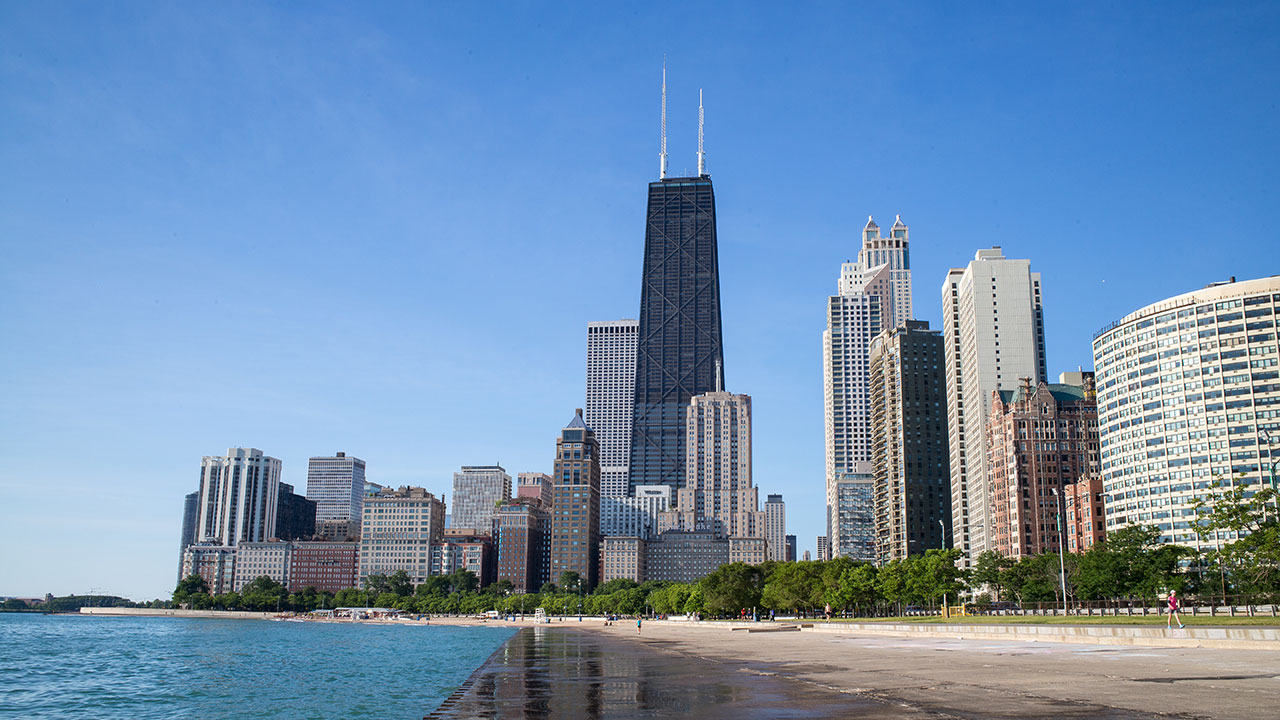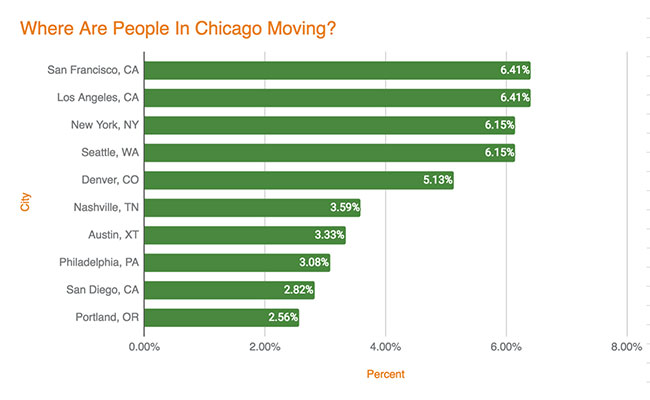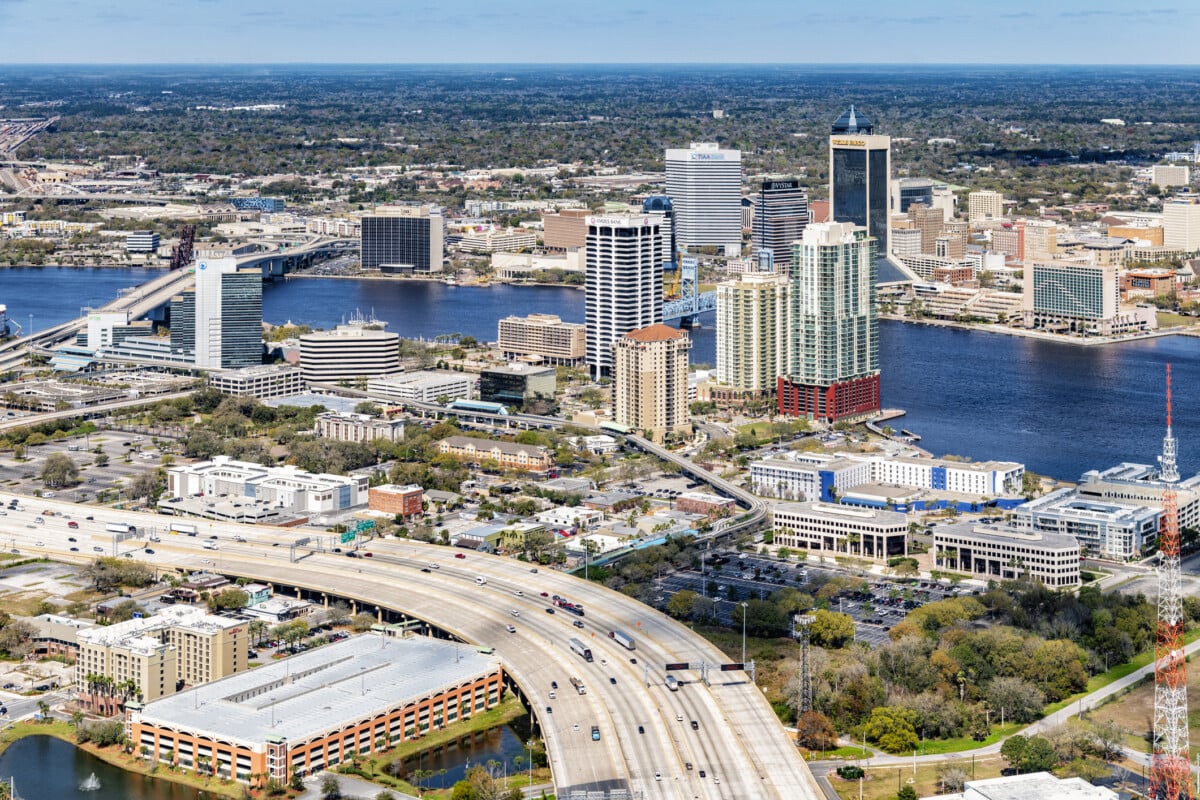Moving From Jacksonville To Chicago
Making the move from Jacksonville to Chicago can be a thrilling yet daunting experience. Leaving behind the warm Florida sun and scenic coastal views, you'll be trading in your flip flops for snow boots as you embark on a new adventure in the Windy City. With its rich history, vibrant cultural scene, and world-class amenities, Chicago has much to offer. But before you start exploring the shores of Lake Michigan, it's essential to prepare for the significant changes that come with relocating to a new city. In this article, we'll guide you through the process of making a successful transition from Jacksonville to Chicago.

Embarking on a New Adventure: Moving from Jacksonville to Chicago
Moving from Jacksonville to Chicago can be a thrilling experience, but it requires careful planning and preparation. The two cities have distinct climates, cultures, and lifestyles, and it's essential to understand the differences before making the transition. Here's a comprehensive guide to help you navigate the process:
Understanding the Climate Difference
One of the most significant differences between Jacksonville and Chicago is the climate. Jacksonville has a subtropical climate with hot summers and mild winters, while Chicago has a humid continental climate with cold winters and warm summers. Be prepared for potential culture shock, especially if you're moving from the sunny south to the windy city. Pack warm clothing, including coats, gloves, and scarves, to brave the harsh Chicago winters.
Job Opportunities and Cost of Living
Chicago is a hub for various industries, including finance, healthcare, and technology. If you're moving for a job, research the company, industry, and job market to ensure a smooth transition. The cost of living in Chicago is relatively higher than in Jacksonville, so budget accordingly and consider factors like housing, transportation, and food costs.
Neighborhoods and Housing Options
Chicago has diverse neighborhoods, each with its unique character. Research areas like Lincoln Park, Lakeview, and Logan Square to find the best fit for your lifestyle and budget. Consider factors like proximity to work, public transportation, and amenities when choosing a neighborhood. Housing options range from apartments to single-family homes, so weigh your options carefully.
Transportation and Getting Around
Chicago has a comprehensive public transportation system, including buses and trains (the 'L'). Invest in a Ventra card to navigate the city easily. If you prefer driving, be aware that traffic and parking can be challenging. Research parking options and street parking regulations to avoid fines.
Chicago is a culturally rich city with world-class museums, theaters, and restaurants. Explore neighborhoods like Wicker Park and Bucktown for a vibrant arts and cultural scene. Be prepared to adapt to a faster-paced lifestyle and a more diverse population. Join local groups and clubs to meet new people and build a social network.
| Category | Jacksonville | Chicago |
|---|---|---|
| Climate | Subtropical | Humid Continental |
| Cost of Living | Lower | Higher |
| Job Market | Growing | Thriving |
| Neighborhoods | Fewer options | Many options |
| Transportation | Limited public transport | Comprehensive public transport |
Note: The table provides a brief comparison between Jacksonville and Chicago, highlighting key differences in climate, cost of living, job market, neighborhoods, and transportation.
Is it a good idea to move to Chicago?

Moving to Chicago can be a great idea for many reasons. The city has a lot to offer, from its vibrant cultural scene to its strong economy. However, it's essential to weigh the pros and cons before making a decision. Here are some factors to consider:
Pros of Moving to Chicago
Chicago is a world-class city with many advantages. Here are some of the benefits of moving to Chicago:
Cultural attractions: Chicago is home to many museums, galleries, and performance venues. The city hosts various festivals throughout the year, including the famous Lollapalooza music festival.
Strong job market: Chicago has a diverse economy with many industries, including finance, healthcare, and technology. The city is also home to many startups and entrepreneurs.
Diverse neighborhoods: Chicago has many unique neighborhoods to choose from, each with its own character and charm. From trendy areas like Wicker Park to family-friendly neighborhoods like Lincoln Park.
Cons of Moving to Chicago
While Chicago has many advantages, there are also some drawbacks to consider:
High cost of living: Chicago is one of the most expensive cities in the United States. The cost of housing, food, and transportation can be high.
Weather: Chicago is known for its extreme weather conditions, with cold winters and hot summers. The city can also experience heavy snowfall and thunderstorms.
Crime rates: Like many major cities, Chicago has areas with high crime rates. It's essential to research and choose a safe neighborhood to live in.
Things to Consider Before Moving to Chicago
Before making the move to Chicago, here are some things to consider:
Research neighborhoods: With so many unique neighborhoods to choose from, it's essential to research and find the one that fits your lifestyle and budget.
Plan for the weather: If you're not used to extreme weather conditions, it's essential to plan ahead and invest in warm clothing and winter gear.
Consider the commute: Chicago is a large city, and commuting can be time-consuming. Research transportation options and factor in the cost of parking and transportation.
Why are so many people moving to Chicago?

Job Opportunities and Career Advancement
Chicago is a hub for various industries, including finance, healthcare, technology, and logistics, offering a wide range of job opportunities. The city is home to several Fortune 500 companies, including Boeing, United Airlines, and Walgreens, providing a strong job market for professionals. Additionally, Chicago has a thriving startup scene, with many incubators and accelerators supporting entrepreneurs and small businesses. The city's strong economy and diverse industries make it an attractive destination for people seeking career advancement and better job prospects.
Major industries in Chicago:
- Finance: Chicago is home to the Chicago Mercantile Exchange and the Federal Reserve Bank of Chicago.
- Healthcare: The city is a hub for hospitals and medical research centers, including the University of Chicago Medical Center and Northwestern Memorial Hospital.
- Technology: Chicago has a growing tech industry, with companies like Google, Microsoft, and Salesforce having a presence in the city.
Affordability and Cost of Living
Compared to other major cities in the United States, Chicago has a relatively low cost of living. The median home price in Chicago is lower than in cities like New York or San Francisco, making it an attractive option for people looking for affordable housing. Additionally, the city has a comprehensive public transportation system, making it easy to get around without a car. This, combined with lower taxes and affordable food and entertainment options, makes Chicago an appealing choice for people seeking a more affordable lifestyle.
Chicago's cost of living advantages:
- Median home price: Around $270,000, lower than many other major US cities.
- Public transportation: Chicago has a comprehensive network of buses and trains, making it easy to get around without a car.
- Taxes: Illinois has a relatively low state income tax rate, with a flat rate of 4.95%.
Quality of Life and Cultural Attractions
Chicago is known for its high quality of life, with a vibrant cultural scene, beautiful parks, and a scenic lakefront. The city has world-class museums, including the Art Institute of Chicago and the Field Museum, as well as a thriving theater and music scene. Additionally, Chicago has a strong sense of community, with many neighborhoods offering a small-town feel within a big city.
Chicago's cultural attractions:
- Museums: The Art Institute of Chicago, the Field Museum, and the Museum of Contemporary Art are just a few of the many world-class museums in the city.
- Theater and music: Chicago has a thriving theater scene, with companies like Steppenwolf Theatre and the Goodman Theatre, as well as a vibrant music scene with many live venues.
- Parks: Chicago has many beautiful parks, including Millennium Park, Grant Park, and Lincoln Park, offering a peaceful escape from the hustle and bustle of city life.
How much does it cost to move to Florida from Chicago?

The cost of moving to Florida from Chicago can vary greatly depending on several factors, including the distance, weight, and type of items being moved, as well as the services required. On average, a move from Chicago to Florida can cost around $2,000 to $5,000 or more.
Factors Affecting the Cost of Moving
Several factors can influence the cost of moving to Florida from Chicago. Some of the most significant factors include:
- Distance: The farther the distance, the more fuel and time will be required, increasing the cost. The approximate distance from Chicago to Florida is around 1,200 miles.
- Weight and volume of items: The more items you have, the heavier and bulkier the shipment, which can increase the cost. A typical moving truck can hold around 10,000 pounds of cargo.
- Type of move: A full-service move, which includes packing, loading, and transporting, will be more expensive than a DIY move where you pack and load your own items.
Moving Services and Their Costs
There are various moving services available, each with its own cost. Some of the most common services and their estimated costs include:
- Full-service move: This type of move includes packing, loading, transporting, and unloading. The cost can range from $2,000 to $5,000 or more, depending on the weight and distance.
- Partial move: This service includes loading and transporting, but you pack your own items. The cost can range from $1,500 to $3,500 or more.
- Renting a moving truck: If you decide to pack and load your own items, you can rent a moving truck. The cost can range from $200 to $500 or more, depending on the size of the truck and distance.
Additional Costs to Consider
In addition to the moving services, there are other costs to consider when planning your move to Florida from Chicago. These include:
- Packing materials: You'll need to purchase packing materials such as boxes, bubble wrap, and tape. The cost can range from $100 to $500 or more, depending on the quantity and quality of materials.
- Travel and accommodation expenses: If you're traveling to Florida before or after the move, you'll need to budget for travel and accommodation expenses.
- Insurance and liability coverage: You may want to consider purchasing insurance to protect your belongings during the move. The cost can range from $100 to $500 or more, depending on the value of your items.
Is Jacksonville a good place to relocate?

Jacksonville is a city located in the northeastern part of Florida, and it has its pros and cons when considering relocation. On one hand, Jacksonville offers a low cost of living, a strong job market, and a wide range of outdoor activities. On the other hand, the city faces challenges such as high crime rates, traffic congestion, and summer humidity.
Pros of Relocating to Jacksonville
Jacksonville offers several advantages that make it an attractive option for those considering relocation. Here are some of the key benefits:
- Affordable cost of living: The cost of living in Jacksonville is lower compared to other major cities in the United States. The median home price is around $170,000, and the average rent for a one-bedroom apartment is around $900.
- Strong job market: Jacksonville has a diverse economy with major industries in healthcare, finance, and logistics. The city is also home to several major companies, including Jacksonville Jaguars, Florida Blue, and Fidelity National Financial.
- Outdoor activities: Jacksonville has a wide range of outdoor activities, including surfing, kayaking, and hiking. The city has over 100 parks and nature reserves, including the Timucuan Ecological and Historic Preserve.
Cons of Relocating to Jacksonville
While Jacksonville has its advantages, it also has some drawbacks that should be considered. Here are some of the key challenges:
- High crime rates: Jacksonville has a high crime rate compared to other cities of similar size. The city has a violent crime rate of 5.5 per 1,000 residents, which is higher than the national average.
- Traffic congestion: Jacksonville is known for its traffic congestion, particularly during rush hour. The city has several major highways, but they can become clogged, leading to long commute times.
- Summer humidity: Jacksonville has a subtropical climate, which means it experiences hot and humid summers. The average temperature in July, the hottest month, is around 90°F (32°C), with humidity levels often reaching 70% or higher.
Neighborhoods to Consider in Jacksonville
When relocating to Jacksonville, it's essential to choose a neighborhood that fits your lifestyle and budget. Here are some popular neighborhoods to consider:
- Riverside: A trendy neighborhood with a mix of old and new homes, Riverside is known for its arts scene, craft breweries, and outdoor recreation opportunities.
- Avondale: A charming neighborhood with a small-town feel, Avondale is popular with families and young professionals. It has a mix of old and new homes, as well as several parks and restaurants.
- Nocatee: A master-planned community, Nocatee is a popular choice for families. It has a range of amenities, including parks, schools, and shopping centers.
FAQ
What is the average cost of moving from Jacksonville to Chicago?
The average cost of moving from Jacksonville to Chicago can vary greatly depending on several factors, including the distance, weight, and type of items being moved, as well as the services required. On average, a long-distance move from Jacksonville to Chicago can cost anywhere from $2,000 to $5,000 or more. This estimate includes the cost of hiring professional movers, renting a moving truck, or using a portable storage container. Additionally, the cost of fuel, tolls, and accommodations for the move should also be factored into the overall cost. It's essential to get quotes from multiple moving companies to compare prices and find the best option for your specific needs.
How long does it take to drive from Jacksonville to Chicago?
The driving distance from Jacksonville, Florida to Chicago, Illinois is approximately 1,070 miles, and the journey can take around 15-20 hours of driving time, depending on traffic and the route taken. The most direct route would be to take I-75 N and I-65 N, which would take you through several states, including Georgia, Tennessee, Kentucky, Indiana, and Illinois. However, it's essential to plan for regular stops for rest, food, and fuel to ensure a safe and comfortable journey. Additionally, you should also consider the time of year, weather conditions, and road closures that may affect your travel time.
What are the best neighborhoods to live in when moving to Chicago?
Chicago is a large and diverse city, with many unique neighborhoods to choose from, each with its own character and advantages. Some of the most popular neighborhoods for newcomers include Lincoln Park, Lakeview, Wicker Park, and Logan Square. These neighborhoods offer a range of amenities, including access to public transportation, parks, restaurants, and cultural attractions. When choosing a neighborhood, consider factors such as commute time, safety, schools, and housing costs to find the best fit for your lifestyle and budget.
What are the main differences between the lifestyle in Jacksonville and Chicago?
Jacksonville and Chicago are two distinct cities with different lifestyles, climates, and cultural identities. One of the most significant differences is the climate, with Jacksonville experiencing a humid subtropical climate and Chicago having a continental climate with cold winters and hot summers. Additionally, Chicago is a much larger and more densely populated city, with a more fast-paced and urban lifestyle. Jacksonville, on the other hand, has a more relaxed and laid-back atmosphere. You'll also notice differences in the cost of living, with Chicago being one of the more expensive cities in the US. Furthermore, Chicago has a rich cultural scene, with numerous museums, theaters, and music venues, whereas Jacksonville has a more laid-back and outdoorsy vibe, with many parks and beaches.